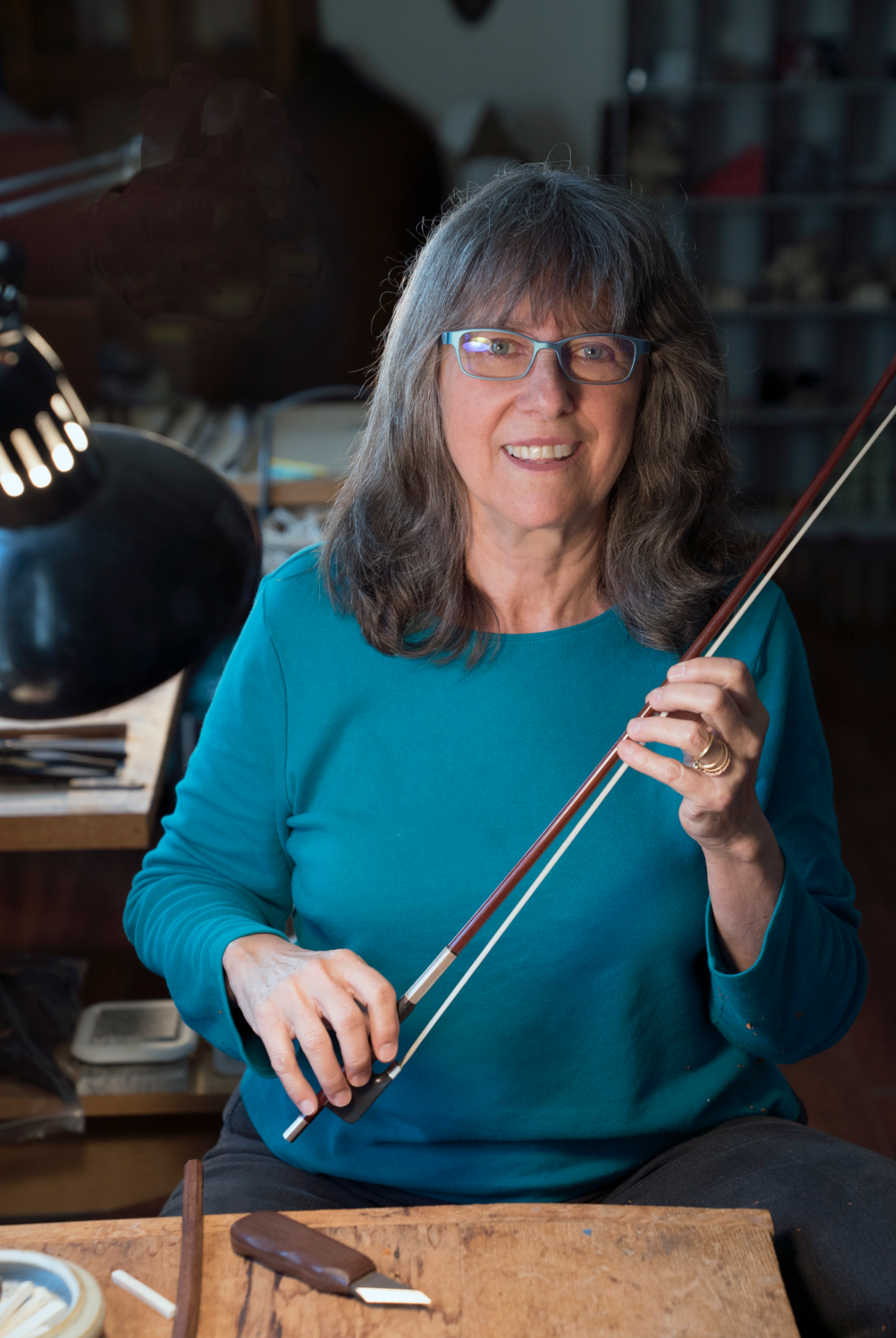An Interview with Lynn Hannings
1. When did bow making become important to you?
I began playing the bass when I was 13 years old. There were no small sized basses at that time or I would have begun at age 10 after hearing Gary Karr play The Swan with the New York Philharmonic. At 16, I had the opportunity to watch a bow re-hair and fell in love with it. I knew at that moment that I wanted to make bows a part of my musical life. I continued into adulthood with two careers, one as a bassist in the Portland Symphony Orchestra and as a bow restorer/maker working in my own shop here in Maine.
2. Why did you decide to make bows for the double bass?
Bow making is most successful when the maker knows how to play the instrument and can best communicate with the musicians. I have made many violin, viola and cello bows over the years, but making bass bows and working with bassists feels like coming home and makes me happy!
3. Who influenced you to play/make bows?
I grew up in the New York City area with the availability of great teachers for bass and for bows. They were highly skilled with generous and encouraging teaching styles. At that time, there were only a few female bassists in symphony orchestras and no female bow makers. Despite that, I feel that I was respected and never felt discrimination from these teachers.
4. What do you enjoy about bow making?
Making bass bows is so amazing because there are no standard sizes! Basses (and bassists!) are all different sizes and shapes. That means that there are no rules and I can work directly with the musician to make a bow that is unique to them; their instrument, musical style, size of body and hand, length/weight/balance and tone truly unique to their playing style and personal preferences. I have always made one bow at a time for an individual bassist and never sold through shops. It’s much more meaningful for me and for the musician.
5. How did you discover your passion for bow making?
The passion was there from my first view of my re-hairer working on my bow at his bench. I loved it more than performance but I didn’t know how to go about getting the training I needed, how to get a job or set up a business of my own. Instrument and bow making was a man’s world and it took me time to find my way and for my male colleagues and musicians to take my work seriously. I can’t tell you how many times I heard, “You don’t look like a bow maker”
6. Do you have any advice for young bass players and bow makers?
I would recommend that bassists and those interested in instrument or bow making talk to others with similar interests and already active professionals to gain a support system and save much time. Good education is key in both. Whichever you choose, it will require a commitment to intensive practice to refine your skills. It’s hard work. Try not to compare yourself to others and instead focus on self-improvement. That way you can develop technical ability and confidence at the same time; both are important to a successful and rewarding career.
7. Is there anything you would have liked me to ask you?
There was a moment in time, while sitting on stage at a symphony rehearsal, that changed my life completely. The conductor was working on a passage with the violin sections and I was staring around the stage when it suddenly came to me that I was surrounded by tropical hardwoods; from the string instruments and bows, to the woodwinds and percussion instruments, to the stage floor, the organ console and even the conductor's baton. It suddenly dawned on me that forests around the world were being destroyed at an alarming rate, that the classical music world was totally reliant on these precious resources but was doing nothing to support conservation or sustainable use. I realised that the future of our musical traditions were in grave danger. Driving home that evening, I made a commitment to myself to try to change that and I have been working hard on it ever since.

